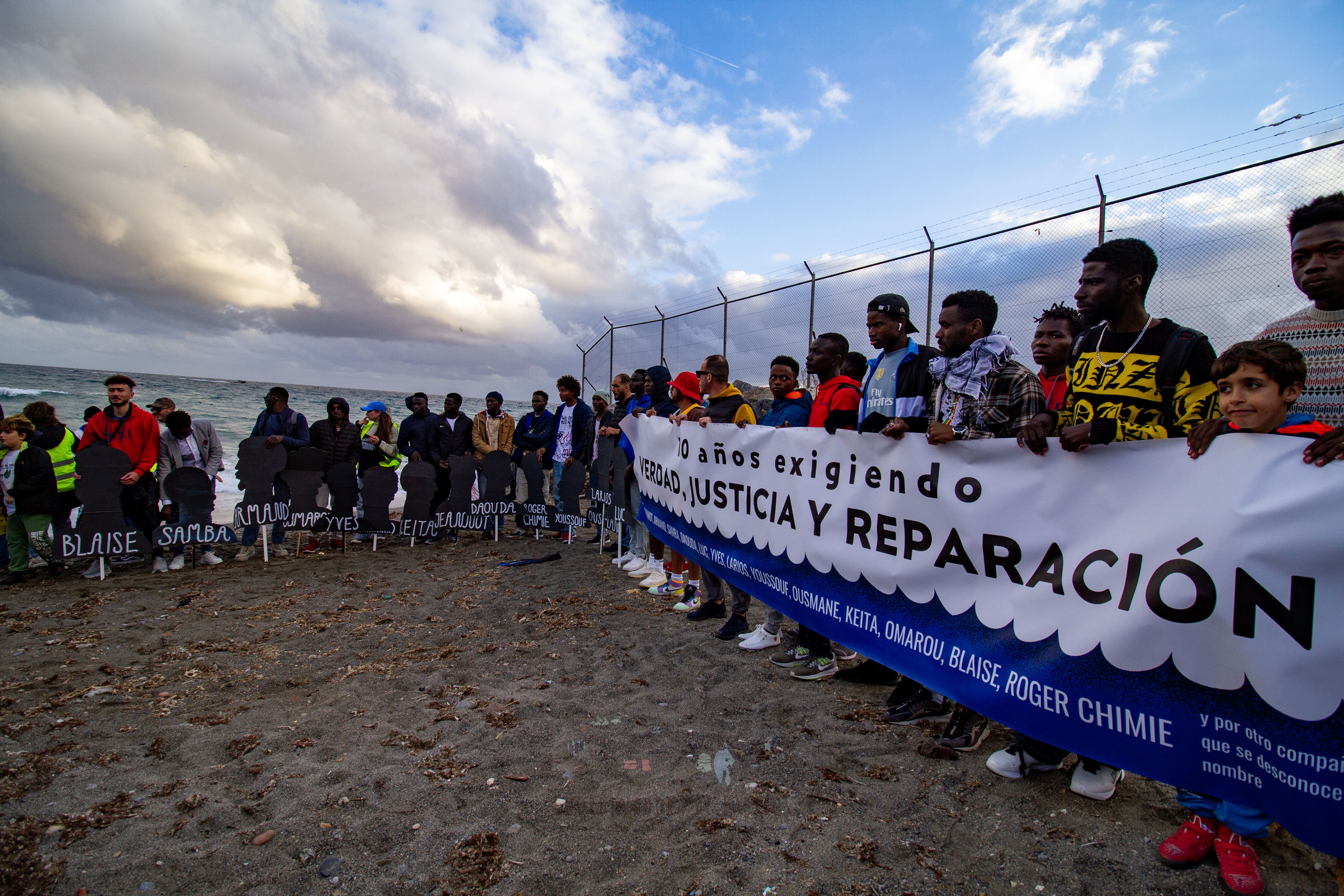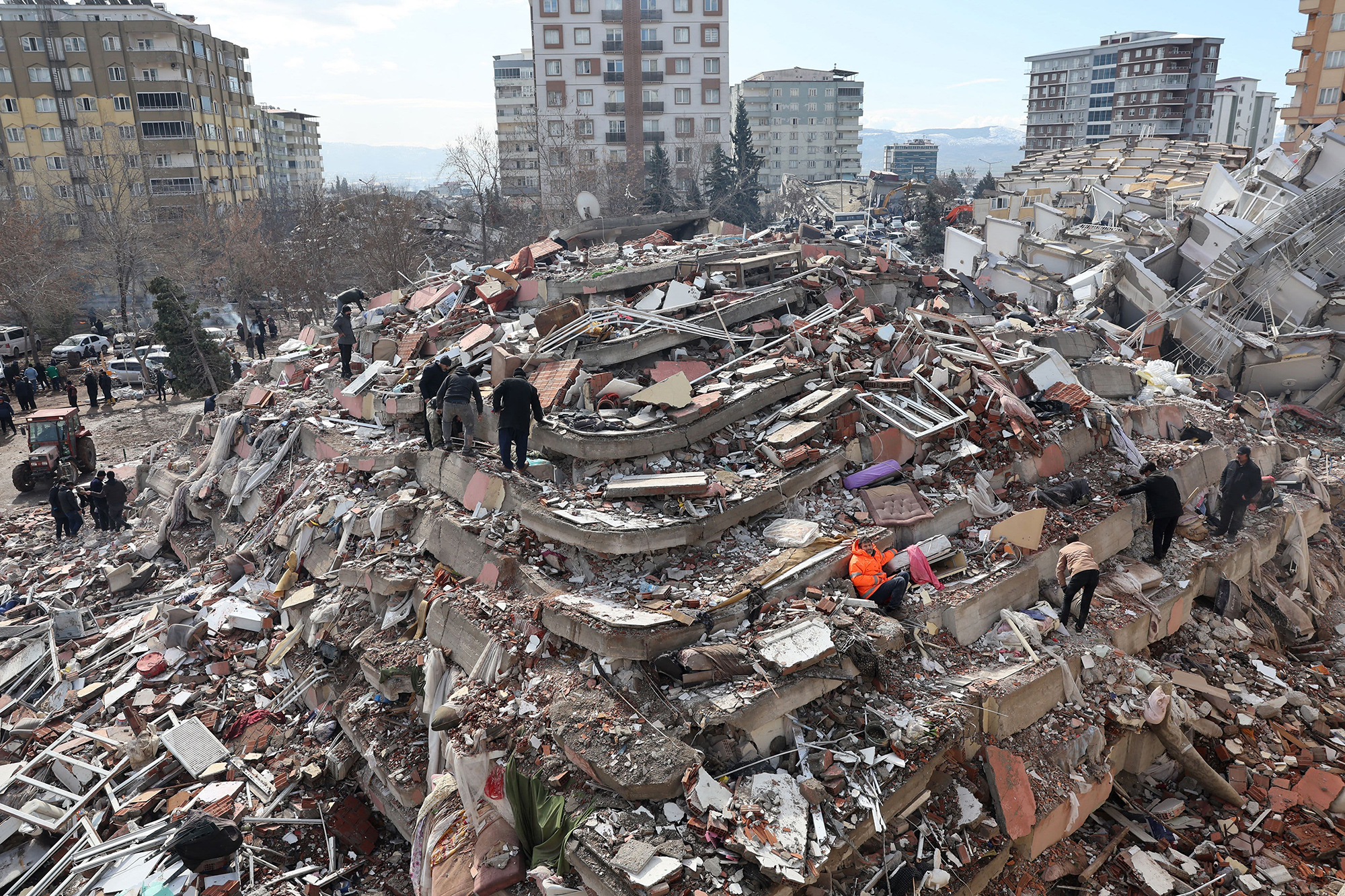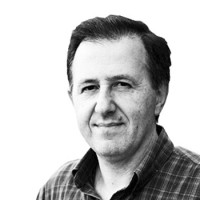Lights and shadows of the Senegalese revolution
- Street protests, with police aggression, denouncing the head of the opposition for rape, then for withdrawal and milder crime, now condemned for the loss of young people, detained at home. Meanwhile, on the street, about seven hundred detainees and at least twenty deaths. The cries against corruption and colonialism, pan-African demands.
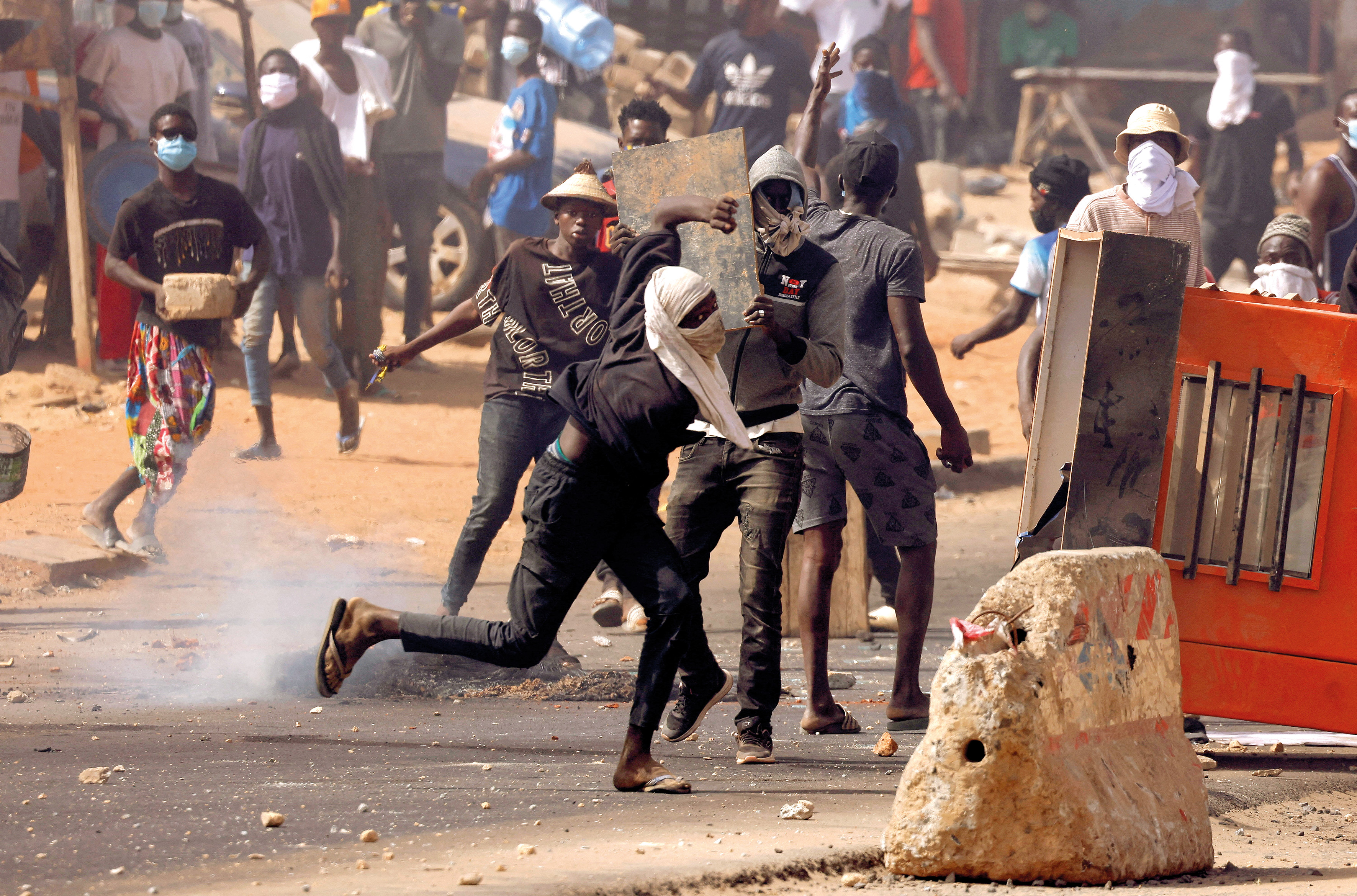
In one of the most “democratic” and “stable” countries in Africa, Senegal. Where and in one of Europe’s largest trading partners. Ousmane Son, head of the opposition, has provoked protests in the country, but they are much more than that: Citizens face President Macky Sall and his “corrupt” system.
There are two sides in Senegal: “There is a caste who does not want to leave power and in front of her a youth who wants freedom and progress.” Senegalese political scientist Saiba Bayo describes the situation. He says the situation is “worrying”, which is “on a blind street”. The current president and his system are protesting in the streets, as there was a ghost in the country that would present Salle’s candidature for his third term, which was charged by him. After a month of absence, the President appeared on 3 July and rejected this possibility: he stresses that the Constitution of Senegal prohibits its presentation in three legislatures, but Salle sells it as his decision.
This step can reassure street riots a lot, but the second part of the problem remains to be solved: Sonko, with the recent sentence he has just received, with a sentence of two years in prison and a fine of about $31,000, prohibits the presidential election of 2024 for political disqualification. “Sonko’s political future is in doubt because it is not supposed to be presented. And right now he’s the most serious candidate,” says Bayo. Although these uprisings are common in the country, the current one is different. Bayo analyses the situation: “All the presidents of Senegal have had to face the popular uprisings, but at the moment the leader of the opposition has the full support of the young, and at the same time is angry in society over the political and economic management of the country.” Meanwhile, Sonko calls his followers to fight since the arrest of his home.
Against the system, from within
Bayo believes that the conflict in Senegal has been filled with personalism and that Sonko has all the weight to revolutionize the system. But it could be anyone else, so big is anger. “No matter how much Sonko or someone is the leader, it could be anyone.” Because Ousmane Sonko is not a wrestler, he is not a guerrilla who has gone down the government, he is a former government official in Senegal, a finance inspector. When he was in that position, he denounced the corruption of the government and the economic elite of the country. “He denounced the abuses of large Senegalese companies, not just the multinationals, and criticized the abuses of both European and Senegalese economic powers,” explains Marra Junior, a member of the Senegalese diaspora set up in Bilbao. Xalaat forms a Xelli thinking group (Think and act) with several diaspora people.
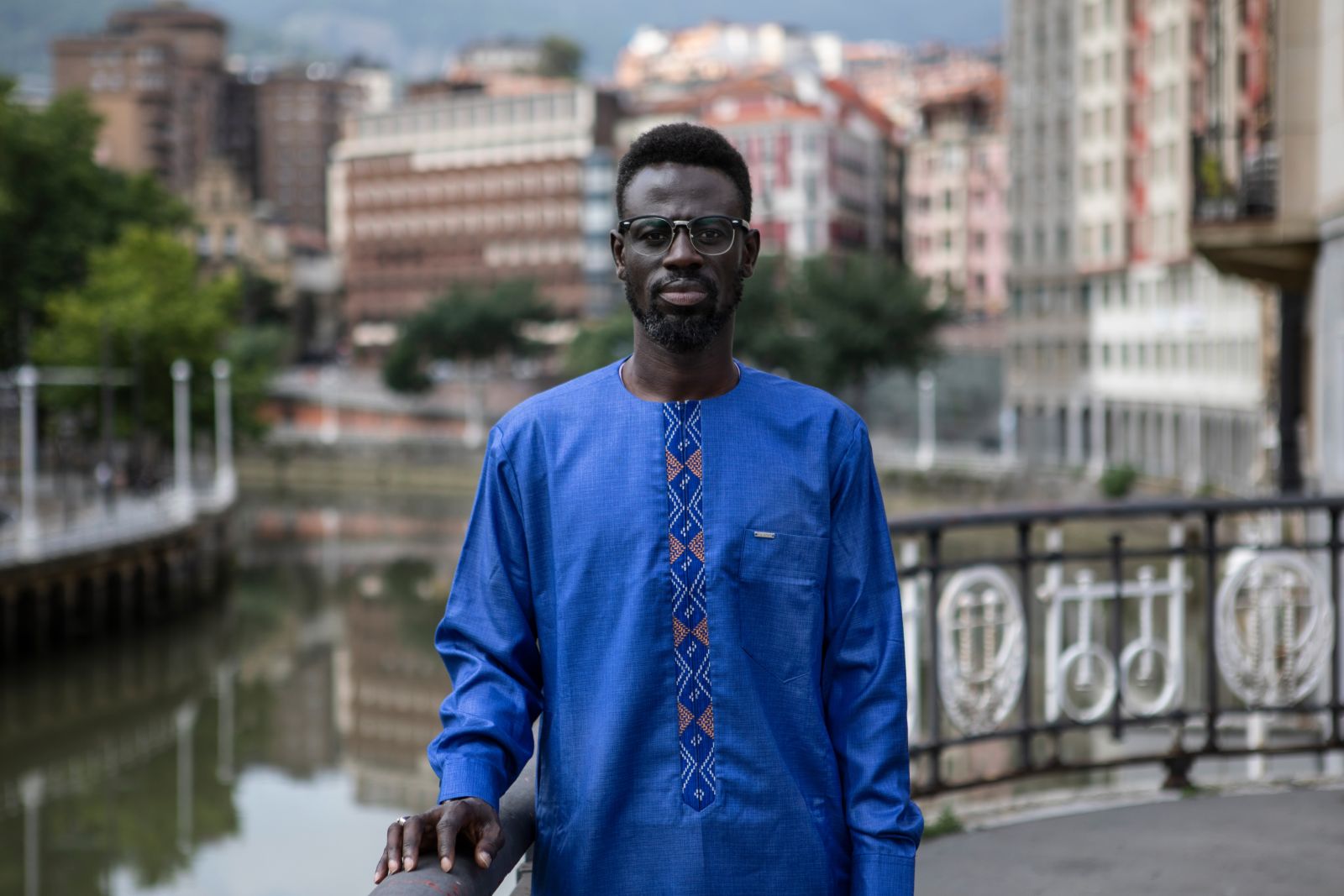
That's where Sonko's political trajectory began, as well as his criminal trajectory. In 2017 he became a Member and two years later became a third force. According to Junior: “Sonko positioned himself in favor of citizenship and developed the discourse. It is the leader that Senegal and Africa need, but also the one that has brought to politics a new language: it is able to convey a message of hope to transform the country.”
However, in 2021 he was charged with raping a woman and threatening her death. Bayo states that the judicial process has been “irregular” and has focused on the keys to the process rather than on Sonko’s guilt or innocence. “The judicial process is fraught with irregularities. Many tests were rejected during the instruction phase.” On the other hand, the crime he was accused of was not in the police report. He adds that the same judgment was made without Son. “The trial has been conducted without the presence of Sonko, and an instrument used to protect him, in the case of the court they cannot find, but Sonko was in his house surrounded by police. How can you say you don’t know where you are if you have police forces at the door of the house?”
The abolition of parliamentary immunity by members of Parliament was added to this process so that they could try and imprison Sonko. The first protests were then unleashed, ten people were killed in disturbances and more than six hundred were injured. It cannot therefore be said that the crisis in Senegal began in June of this year, because it is a matter of a great deal of breath, but this year, already with the ruling on the street, it can have a great impact on the future, at the gates of the presidential elections in 2024.
The female body as a political scenario
While Sonko’s good or bad reputation and government corruption or non-corruption are in public debate and occupation, there is a space that has been left out of the stage and that is the very scenario: the female body, or in this case Sonko’s whistleblower. “Right now, the whole country is hooked on the whims of two powerful men, while the body of Adji Sarren (the whistleblower) is shaking like a boxing bag between the two sides,” the Senegal Feminist Network explains in a statement. ARGIA gets in touch with them and starts an interview with one of the signatories, but the situation that is too complex and sensitive makes the conversation void.
Junior Line: “Since there are many French companies in Senegal, the media do not give a negative situation in Senegal to prevent companies from leaving there”
Members of the feminist network have reversed the sentence: “From any point of view, this sentence is a harsh blow to the rights of Senegalese women.” In the communiqué, the network questions the unanimous version of opposition movements, which is all false. Sonko has denounced a woman who works or was, rather, in a massage shop, after which the store owner receives the same prison sentence and the store closing order. Members of the network have determined that the prosecution of another minor crime than rape does not mean that there has been no rape, but that it is very difficult to prove the violation in a “legal system with sexist organizations”, and even claim that in the country men are barely punished for the rape.
They add in the statement that those who believe in the complainant say: That his reputation was in favour of Sonko and that in the courts they have defended his innocence. But also punishing the store owner shows that, according to his statement, they also offered services with sexual connotations. In their opinion, this media case will make it difficult for women victims of sexual violence to report such violence, given the incidence of this case. In addition, they add that they have manipulated Adji Entr Son to denounce that it reinforces sexist stereotypes and infantilizes the victims, because they imply that they are not able to identify by themselves a sexual assault.
Living neocolonialism
Macky Sall is the face of the Senegalese system, which comes from independence and from previous times: the colonial system. “Administration is colonial, not intended for local governance. They have no interest in the economic development of the colonized countries, they just want exploitation,” says Bayo. Sall is a status quo, and that status quo is good for Europe, because it is a way to follow the spire. “Senegal’s agreements with France are clearly colonial. France is the first customer and supplier, France has priority to privatise any company in Senegal. There is a colonial agreement.”
.jpg)
France is the main multinational Senegal controlling the main services of the country: “France controls the port of Senegal, one of the most important in West Africa.” And the main European contracts are linked to this port. In fact, most European companies with businesses in Senegal belong to the fisheries sector; there are also fishing boats from the Basque Country on the coasts of Senegal. However, members of opposition movements denounce that these contracts are “excessive” and that they condition the country’s future. Says Junior: “They encourage young people to leave the country. This situation condemns young Senegalese people for lack of work and for the need to take dangerous migratory routes to Europe.”
In fact, almost all of the Senegalese economy is based on traditional fishing and has a strong influence on GDP: it provides an average of 415 million euros to the country and generates 600,000 jobs. But EU contracts with partner countries allow multinational fishing companies to work on the African coast. According to the latest contracts, 42 European fishing vessels have permission to stay there for up to 10,000 tonnes of fish in five years.
Saiba Bayo: “All presidents have had to face popular uprisings, but the opposition leader is now supported by young people.”
But not only economically, but geostrategically, it is also important for Senegal Europe. “In the face of terrorism and migration, Senegal is one of the strategic countries: geographical and diplomatic. There are, from the French government, the first embassies; also from the perspective of cooperation, many African organizations have their headquarters,” says Bayo. These organisations necessarily need a stable and peaceful country. And that is precisely the image that Senegal has created. “This situation influences the image of tranquillity of the developing country. That was precisely Sall’s campaign,” says Bayo.
Bayo says that the image is false and that to realize it you only have to know its situation. He says that popular uprisings are common, that the situation of citizenship is deteriorating and that the gap between government and citizenship is increasing: “In Senegal there are thousands of people in poverty, they have no food, hospitals and schools are not in good condition, children are in vulnerable situations. On that is the rising standard of living of the members of the government, there is a huge gap between the people and the government.”
Censorship and self-censorship
The country is in deep protest and scandal, but information and images are scarcely collected at national and international levels. And this is related, according to Junior and Bayo, to the “stable” image of the country. “The European media, but especially the French, are very interested in how the situation in Senegal is treated. Since there are many French companies in Senegal, the media do not have a negative situation in Senegal to prevent companies from moving. They don’t want to cut the economic flow, they want to show that Senegal is a good place for investment,” says Junior.
The Senegalese Feminist Network denounces that the two power camps are agitating as “boxing bags” the woman who denounced the opposition leader for sexual assault
The media and journalists have two options: either establish self-censorship or take the risk of censorship. “Most media don’t talk about it because the government gives them subsidies, even independent journalists, and they know what it would mean. Either the media are in favor of the government or they threaten to lose their license. Thus, one of the main chains is suspended,” explains Bayo.
Social networks have therefore become the only means of communication. Information about the country, almost in its entirety, is received by people in the diaspora and international media, who have imprisoned journalists and cut signals. But the government is aware of it, and that's why it's cut the Internet connection.
.jpg)
Fighting for Deserri
In this way, uprooting often becomes even more difficult. From the fifteenth region of the country, thus called the diaspora, information is being expanded, because they understand that they have an obligation to report here and rebel against what happens there. “Our obligation is to transmit all possible information to the international media, because if it were not for the work of the country’s alternative media and diaspora inhabitants, perhaps the current situation would not be made public,” says Junior. The account of the president's crimes, Mally Sack, has been taken by him and his team to bring them to the International Criminal Court, as well as the detailed account of the detainees and missing persons.
Bayo also does the same: “I have also had to become a barber, and as I have had many members of the Senegalese diaspora, rather than journalists. The situation of journalists is very complex, so we take the risk of publishing the information provided by our family members. We have to position ourselves,” says Bayo.
Junior Line: “Son’s opposition leader positioned himself in favor of citizenship and developed the discourse. It’s the leader Senegal and Africa need.”
Xalaat, a member of the Junior, has also called for mobilisations by the Xelli group, Bilbao and Pamplona, and the organisation has shown satisfaction with the replies received. “The Senegalese diaspora community is very quiet, passive. This has to do with the precarious situation that we are living here. But in the face of the situation, many people have awakened their passion for fighting. Many people responded, there were mobilizations of people who had never mobilized before,” explains Junior.
Junior says that they have also received a positive response from Basque citizenship, as well as from the media and political parties that mobilized, because they managed to get in touch with them and opened doors for the following objective: “We believe that this representation of Senegal in the Basque Country must also reach the institutions and that the institutions must also respond to this.”
.jpg)
The future is neither accurate nor clear to the people of Senegal, that is what Bayo says, and the change, even if it comes from Sonko’s hand, will not be overnight: the whole system to change it, nothing else. “The blocks of the political class must be dismantled, the judiciary must be completely reformed. The system is fully infected, the tree roots must be changed. Now they are fighting the system and then we have to fight the subsystem: officials, judges and many others will rise up against the change of status quo.” Bayo makes it clear, as the protest, that the government and the future of the country are in the hands of the young people, they have the key to transform the system: “The process is not going to be in the hands of our generations, those who will get it are the ones who are twenty years old today.”
Waoundé Senegaleko herri txiki bat da, Dakarretik 730 kilometrotara Senegal ibaiaren bazterrean dagoena. Harantz joan zen duela gutxi Frantziako L'Express astekariko Eric Chol. Kazetari honek ezagutzen zituen Frantzian, eta batik bat Paris inguruetan, bizi diren... [+]












